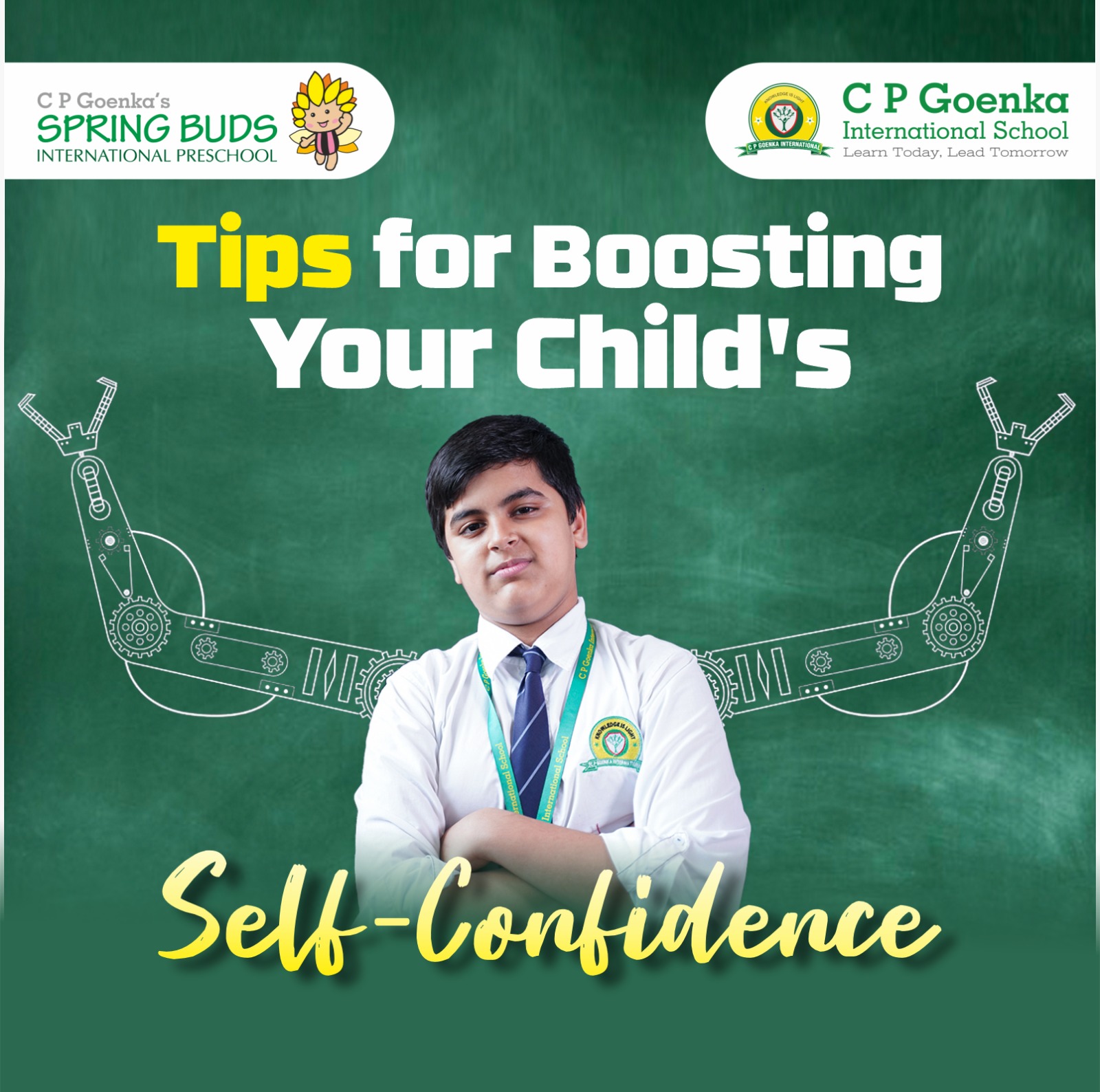
To Top
Top Tips for Boosting Your Child’s Self-Confidence
Do you want your children to be happy and succeed in life? However, most moms and dads claim that parenting is the most challenging task. As a parent, you feel concerned about your kids’ academic success and healthy relationships. So, how will you bring positivity into your child’s life? Let your little ones build more confidence. Even small victories make them confident in their abilities. Find a brief guide on how to grow self-confidence in your children.

The Best tips for nurturing your kid's self-confidence
A few tips will help parents make their kids confident.
Celebrate your child’s effort -
The outcome of an effort does not always matter when you raise a child. So, you need to appreciate your kids’ effort to do new activities. They will also learn to value everything they do. For example, your children might have participated in a drawing competition. Although they have drawn something, they have not won the contest. In this case, there is no need to focus on the loss. You should also celebrate their persistence and remove the fear of failure.
Encourage passions and hobbies -
A child may not be efficient at every task. Some kids have good storytelling abilities, but others like to dance. Hobbies allow them to express their passion. It also enables them to nurture skills and develop focus. So, you must value your children’s natural interests and stimulate them to do anything they love. Introverted children will also gain self-worth when they engage in hobbies.
Show your unconditional love -
The way you perceive your children has a significant effect on their self-confidence. So, you must not relate your love and affection to your kids’ behaviours and performance. Let your children feel that they are always worthy of your love. Kids who receive conditional love only when they succeed may fear rejection. In contrast, unconditional love keeps them from the stress of achieving perfection.
Promote socialisations -
Some kids easily make new friends. However, not every child shows the same attitude. Your little ones may hesitate to communicate with others. So, encourage good social interactions and help them develop communication skills. It will allow them to grow emotional strength. Community clubs and school drama classes are safe places where your little ones can interact easily. Kids with social anxiety issues can express themselves during interactions.
Do not be a critic -
People involved in your kids’ lives often say something about their abilities. But, negative statements and harsh words can demotivate your children. Your little ones may lose their confidence over time. So, you must not criticise your kids in any way. Focus on their strengths and let them feel good. You will slowly find improvement in your child’s behaviour.
Develop a safe space for self-expression -
Your kids expect others to understand their feelings. They may feel upset after a conflict with a friend. They could also feel confused about unexpected things. So, ensure your little ones can express their feelings in a judgement-free zone. Never use phrases like ‘You are crying without reason.’ Rather, ask questions and learn the reasons behind the upset feelings. This open communication will help your kids process their emotions effectively. Such emotional security also develops self-confidence in them.
Encourage your kids to be persistent -
Success does not happen overnight. Failures and criticisms are a part of everyone’s life. Moreover, setbacks in life provide some learning opportunities. Your children should understand these facts to gain confidence. Suppose your children have participated in a swimming competition. If they do not win, they should constantly try to improve their skills.
Set realistic goals for your kids -
You should help your children set an achievable goal. If your children cannot achieve the target, they will lose self-confidence. However, the goals are not merely about academic achievement. You need to guide your kids in developing a strong inner foundation. Remember that unrealistic expectations cause chronic stress to your children. So, set the goals strategically and help them feel secure.
Assign age-related tasks -
Kids can thrive only when you trust them. So, assign a few small tasks (such as organising the toy) and help them feel confident. These responsibilities also allow shy children to boost their confidence. Real-world self-confidence enables them to face big challenges.
Encourage children to learn new things -
Children with low confidence shy away from performing new activities. They are not ready to accept challenges in life. That is why you must ask your little ones to do something new and develop more skills.
Why should you nurture self-confidence in your children?
Your effort to build self-confidence in your kids will provide several benefits-
Less anxiety and fear -
Your children should not be concerned about their mistakes. Their concerns about mistakes damage their social and academic lives. But, too much self-confidence may cause overthinking. So, ensure your child feels interested in hobbies and ambitions without worries.
Better motivation -
Low confidence does not stimulate your children to achieve their goals. Thus, positive feelings are important for staying motivated and dedicated. You need to teach children to do small tasks and have a sense of achievement.
Improve relationship -
Another reason for growing self-confidence is to help kids build relationships with their peers in schools. They will also grow empathetic feelings and feel encouraged to help others. Moreover, confident kids enjoy social interactions.
A more resilient mind -
Self-confident learners can manage setbacks in their lives easily. Failures do not hurt their mind. They reset their mind quickly and learn new things from every mistake. It means failure is acceptable to them and encourages them to take further steps for success.
Conclusion
Confidence is vital to a child’s success in the future. Confident kids efficiently deal with their peers and daily responsibilities. They can easily manage negative and positive emotions. However, parents and schools play a role in making kids self-confident. Science-based tasks and creative activities train your little ones to become confident and self-loving. You will also feel proud of your kids’ achievements.











